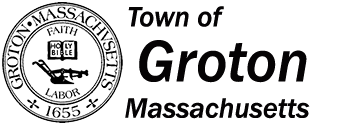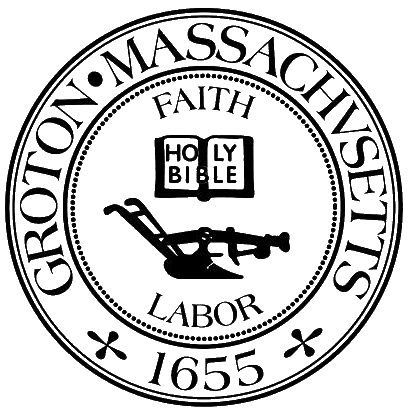- What is personal property?
Personal property is “tangible” property. That means the property physically exists. Personal property is assets, goods and material objects used in the conduct of a business and is assessed separately from real estate.
The assessment date is January 1 of each year. Any business that existed on that date is subject to personal property tax and will be billed for the entire fiscal year. This applies to businesses that have closed or relocated after the assessment date. Personal property tax is not prorated per Massachusetts General Law.
- Who must file a return?
All proprietors, partnerships, associations, trusts and corporations must file a Form of List declaring items as personal property as of January 1 each calendar year. This is a state requirement.
- Where and when must my return be filed?
The Form of List is to be filed with the local Board of Assessors each year before March 1 to determine its fair market value. If property has no permanent location (e.g. construction equipment), it must be listed with the assessors in the city or town where you are domiciled (legal place of residence).
- Can I get an extension of the filing deadline?
Requests for an extension may be granted if you can show sufficient reason for not filing on time. The latest date the filing deadline can be extended is 30 days after the tax bills are mailed for the fiscal year. Request for extensions must be in writing.
- What is the penalty for failure to file or for filing late?
Pursuant to Massachusetts General Law c. 59, sec 64, if no Form of List was filed for the fiscal year, the assessor cannot grant abatement for overvaluation of personal property for the year. A Form of List is not considered filed unless it is complete.
If the Form of List is not filed on time, the assessor can only grant abatement if the taxpayer shows a reasonable excuse for late filing or if the tax assessed is more than 150% of the amount that would have been assessed if the Form of List was filed on time. In this case, only the amount over the 150% of the correct value can be abated.
- What is the return used for and who has access to it?
The Board of Assessors uses the information provided on the Form of List to determine the taxable or exempt status of your personal property as well as its fair market value. The assessors may also require you to provide in writing further information about the property and to permit them to inspect the property.
Note: Forms of List are confidential and not open to public inspection.
- What personal property is taxable?
The following summarizes personal property that must be listed on a Form of List. The type of business determines which assets will be taxed locally.
Individuals (Sole Proprietorship & Partnerships)
- Business furniture and furnishings, i.e. desks, tables, chairs, file cabinets, accessories, etc.
- Business machinery and equipment, i.e. computers, monitors, printers, fax machines, copiers, compressors, power tools, landscaping equipment, ovens, food processing equipment and machinery, examination tables, x-ray equipment, etc.
- Business inventory, the dollar amount of “stock in trade” that the business carries on January 1. This inventory amount is usually included on the federal income tax form.
Business Corporations
To be considered a corporation the business must be included in the Massachusetts Domestic and Foreign Corporations Book compiled by the Massachusetts Department of Revenue.
Business corporations are taxable on poles, underground conduits, wires and pipes.
They are also taxable on all machinery used in the conduct of business except:
- Machines that are stock in trade. Example: Inventory for sale or lease such as copy machines from a copy machine distributor would be considered exempt.
- Machines used directly in the dry cleaning or laundering process. Example: A dry cleaning machine owned by a dry cleaner would not be taxable because it is directly involved in the cleaning process.
- Refrigeration and air conditioning equipment used by an incorporated business would not be taxable.
- Machinery used directly in the purchasing, selling, accounting or administrative function of the business. Example: Vending machines or point of sale equipment is not taxable. A computer used by a bookkeeper or accounting department of a corporation for payroll would be exempt, however a computer used to do a client’s taxes would be taxable.
Note: Machinery used to provide a service or produce a product for sale or to generate income is taxable. Example: A computer and printer used by a real estate company to generate and distribute information to a prospective client would be taxable.
Manufacturing Corporations / Public Utilities
Businesses that are classified by the Department of Revenue as “Manufacturing Corporations” and are listed as such in the Massachusetts Domestic and Foreign Corporation Book are not subject to personal property taxes. The Department of Revenue determines values on poles, underground conduits, wires and pipes for certain landline telecommunications carriers and for gas pipelines.
Appealing Personal Property Tax
Property owners who feel that their personal property is overvalued or exempt may file for abatement. Please note that if no Form of List was filed for the fiscal year, the assessor cannot grant abatement for overvaluation of personal property for the year. A Form of List is not considered filed unless it is complete.
Abatement applications for personal property may be obtained only after the Third Quarter tax bill has been mailed, typically at the end of December. This application must be filed with the Board of Assessors by the due date of the Third Quarter tax bill (typically February 1). Information regarding appeals is also mailed with the Third Quarter bill.
Abatement filings and abatement amounts are public records. However, individual abatement applications are not public records.
The Assessing Department may require owners or lessees of personal property to provide certain information in writing as may be reasonable to determine actual fair cash valuation of the property. Failure to comply with the request within thirty days will bar any appeal of the tax assessed, unless the owners or lessees were unable to comply for reasons beyond their control. Any false statement that is knowingly made will also bar the taxpayers from any statutory appeal.
Requests for extension to file the Form of List must be made in writing and approved by the Town of Groton Board of Assessors. Requests must be made 3 business days prior to deadline for submitting your return. No electronic requests for extension will be accepted.
(978) 448-1100
Town Hall Offices
Contact Us
173 Main St.
Groton, MA 01450
View Hours of Operation
Online services are available 24/7

